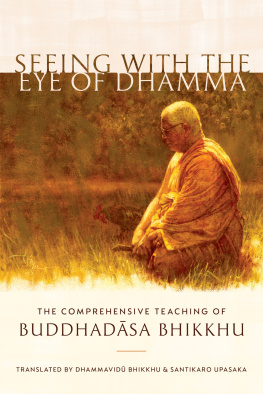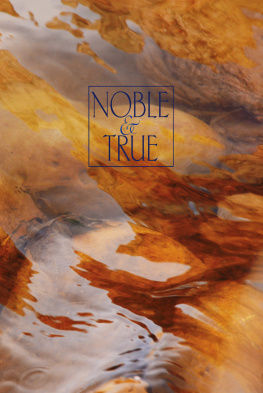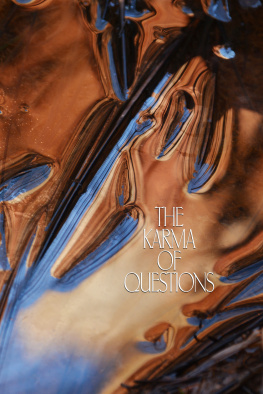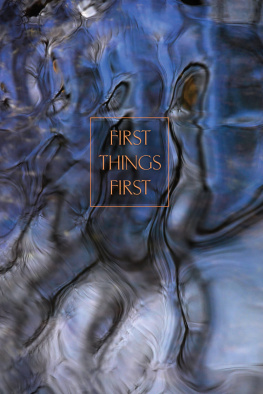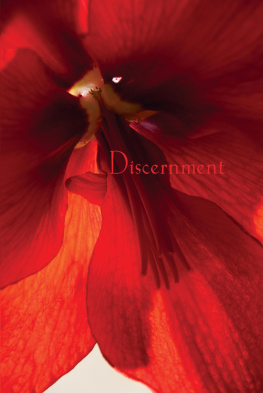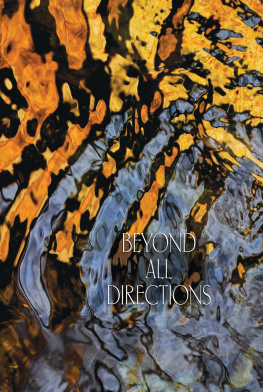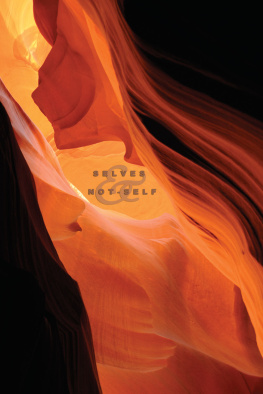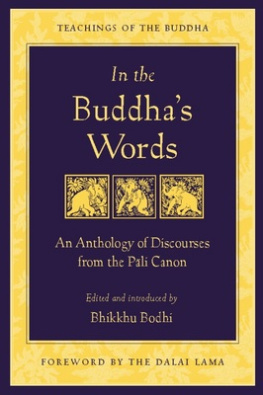Walpola Rahula - The Heritage of the Bhikkhu
Here you can read online Walpola Rahula - The Heritage of the Bhikkhu full text of the book (entire story) in english for free. Download pdf and epub, get meaning, cover and reviews about this ebook. year: 1974, publisher: Grove Press Book, genre: Religion. Description of the work, (preface) as well as reviews are available. Best literature library LitArk.com created for fans of good reading and offers a wide selection of genres:
Romance novel
Science fiction
Adventure
Detective
Science
History
Home and family
Prose
Art
Politics
Computer
Non-fiction
Religion
Business
Children
Humor
Choose a favorite category and find really read worthwhile books. Enjoy immersion in the world of imagination, feel the emotions of the characters or learn something new for yourself, make an fascinating discovery.

- Book:The Heritage of the Bhikkhu
- Author:
- Publisher:Grove Press Book
- Genre:
- Year:1974
- Rating:4 / 5
- Favourites:Add to favourites
- Your mark:
- 80
- 1
- 2
- 3
- 4
- 5
The Heritage of the Bhikkhu: summary, description and annotation
We offer to read an annotation, description, summary or preface (depends on what the author of the book "The Heritage of the Bhikkhu" wrote himself). If you haven't found the necessary information about the book — write in the comments, we will try to find it.
The Heritage of the Bhikkhu — read online for free the complete book (whole text) full work
Below is the text of the book, divided by pages. System saving the place of the last page read, allows you to conveniently read the book "The Heritage of the Bhikkhu" online for free, without having to search again every time where you left off. Put a bookmark, and you can go to the page where you finished reading at any time.
Font size:
Interval:
Bookmark:
THE HERITAGE OF THE BHIKKHU
OTHER BOOKS BY WALPOLA RHULA
Published by Grove Press
What the Buddha Taught
ALSO BY WALPOLA RHULA
History of Buddhism in Ceylon
Lamkv Budusamayehi Itihsaya
Budun Vada Dharmaya
Le Compendium de la Super-doctrine (Abhidharma-samuccaya) dAsaga
(translator and annotator)
THE BUDDHIST TRADITION OF SERVICE
WALPOLA RHULA
FOREWORD BY EDMUND F. PERRY
TRANSLATED BY
K.P.G. WIJAYASURENDRA
AND REVISED BY THE AUTHOR

Copyright 1974 by Walpola Rhula
All rights reserved. No part of this book may be reproduced in any form or by any electronic or mechanical means, including information storage and retrieval systems, without permission in writing from the publisher, except by a reviewer, who may quote brief passages in a review. Any members of educational institutions wishing to photocopy part or all of the work for classroom use, or publishers who would like to obtain permission to include the work in an anthology, should send their inquiries to Grove/Atlantic, Inc., 841 Broadway, New York, NY 10003.
The Heritage of the Bhikku was originally published as Bhiksuvag Urumaya by Svastika Press, Colombo, 1946.
Printed in Canada
Published simultaneously in Canada
Library of Congress Catalog Card Number 73-19215
ISBN 0-8021-4023-8
Grove Press
841 Broadway
New York, NY 10003
03 04 05 06 07 10 9 8 7 6 5 4 3 2 1
To the memory of those thousands, bhikkhus and others, who sacrificed their lives in the political struggle in Ceylon in 1971
By Edmund F. Perry,
Professor of the Comparative Study of Religions,
Northwestern University
This book presents a reliable account of the Buddhist monks mode of life and his range of leadership responsibilities from the time of the Buddha to the insurgency in Ceylon in 1971. The publication of this book in English appears auspiciously at the very time when an entire generation of youth and Western scholars seek to know what the Asian religions offer to mankind. Interest in the identity of the Buddhist monk (bhikkhu) centers on his personal pursuit of perfection and his life as a type of public leader.
Bhikkhu Walpola Rhula wrote The Heritage of the Bhikkhu during his own vigorous participation in the movement to gain Ceylons independence from the British. He wrote the book to inform his own countrymen, Buddhist monks and laymen, of the role which the Buddhist tradition had formed for and bequeathed to the monk. This fascinating story discloses a genre of indefatigable men, in generation after generation, who disciplined their own lives, who taught others, and who served others in the total range of their individual, social, and spiritual needs. Bhikkhu Rhulas account recalled to his countrymen that historically the Buddhist monk had participated in public affairs, including participation in political decision making and political action which affect the common welfare and possibility of happiness for the masses of people.
The image of the Buddhist monk as a public leader engaging in social and political activities had been obscured, deliberately so, by Western colonialists and their accompanying Christian missionaries. By imposing a particular type of Christian monasticism upon the Buddhist clergy, restricting the clergys activity to individual purification and temple ministries, the colonial administrators dispossessed the bhikkhus of their influence on the public life of their people and actually succeeded in instituting a tradition of Buddhist recluses, to the near exclusion of other types of clergy.
Truth and Christian conviction, with the advantage of hindsight, compel me, who am myself an orthodox Christian, to call attention to the accuracy of Bhikkhu Rhulas references to the complicity of many Christians in the colonial subjection of the Buddhists of Asia and in the suppression of their monks by shameful intrigues and deceits. The conspiracy to convert the Buddhist monk from public leader to disengaged recluse prevailed so widely and pervasively that today even in independent countries the monks have to struggle against so-called Buddhist politicians who, still possessed by the heritage left by the imperialists, want, more than the colonial Christians, to silence and seclude the monks as though the monk constitutes a public menace. Professor Rhula has exposed this present-day political effort perpetrated against the monks by professing Buddhist politicians.
Western scholarship has failed to correct misrepresentations of the Buddhist monk. To this day Western scholars of Buddhism tend to perpetuate the image of the Buddhist monk as something like the medieval mystic recluse of the Christian faith. And certainly some Buddhists, lay as well as monastics, have withdrawn from society and sought individual perfection in solitariness. But, Professor Rhula reminds us, Buddhism does not make a virtue of spiritual solitude. So, even as The Heritage of the Bhikkhu sought in its Sinhalese original to recover the distinctively Buddhist character and role of the monk, so now in its English translation and expanded edition it seeks to correct misrepresentations made by well-intentioned investigators from Western universities. Western students who have achieved a technical mastery of the languages of the Buddhists can translate literal or postulated, but rarely ever cultural, meanings for words in Buddhist texts or in usage by living Buddhists. Hence misrepresentations continue.
The Venerable Professor Rhula recapitulates in his own mentality the culture of the Order of Buddhist Monks. Based upon his own heritage of the monks culture and his own cultivation of incomparable competency in the languages, philosophy, and history of the bhikkhu, Professor Rhula offers us an essay both easy to read and to understand. At the same time, the precise vocabulary and simplicity of expression which make this a fascinating and understandable essay also open up to us scholarly information and profound insights hitherto unknown outside of Buddhist countries and Asian languages.
Both the book, The Heritage of the Bhikkhu, and its author have now become a part of the bhikkhus heritage, for Rhula has formed his own life as a monk along the lines set in the classical tradition of Buddhism. At the time he was engaged in the Ceylon independence movement, Bhikkhu Rhula was characterized in D. B. Dhanapalas Eminent Indians as a scholar, an organizer, a planner, a preacher, a debater, a writer and a champion of the people misled and misguided by the colonial colossus. He interrupted his career as a scholar to emancipate those Buddhist monks confined to [their] temple and exploited by politicians at election time... denied modern education, cut off from the life of the people. He won over to his position the influential monastery, Vidylankra Pirivena, and thereby, within weeks, the support of thousands of monks who, with him, inveighed against reactionary politicians.
He enheartened the masses of hungry people in the 1940s. Twenty years later he headed an institution of higher education in Ceylon, an institution which, as a coeductional university, betokened his vision of equal educational opportunity for every child born in Ceylon. Many of his students in this university were children of those masses he had inspired twenty or more years earlier. Rhula planted in the childrens minds the hope of a decent and economically self-sufficient Ceylon. If, as Dhanapala continued in
Next pageFont size:
Interval:
Bookmark:
Similar books «The Heritage of the Bhikkhu»
Look at similar books to The Heritage of the Bhikkhu. We have selected literature similar in name and meaning in the hope of providing readers with more options to find new, interesting, not yet read works.
Discussion, reviews of the book The Heritage of the Bhikkhu and just readers' own opinions. Leave your comments, write what you think about the work, its meaning or the main characters. Specify what exactly you liked and what you didn't like, and why you think so.

